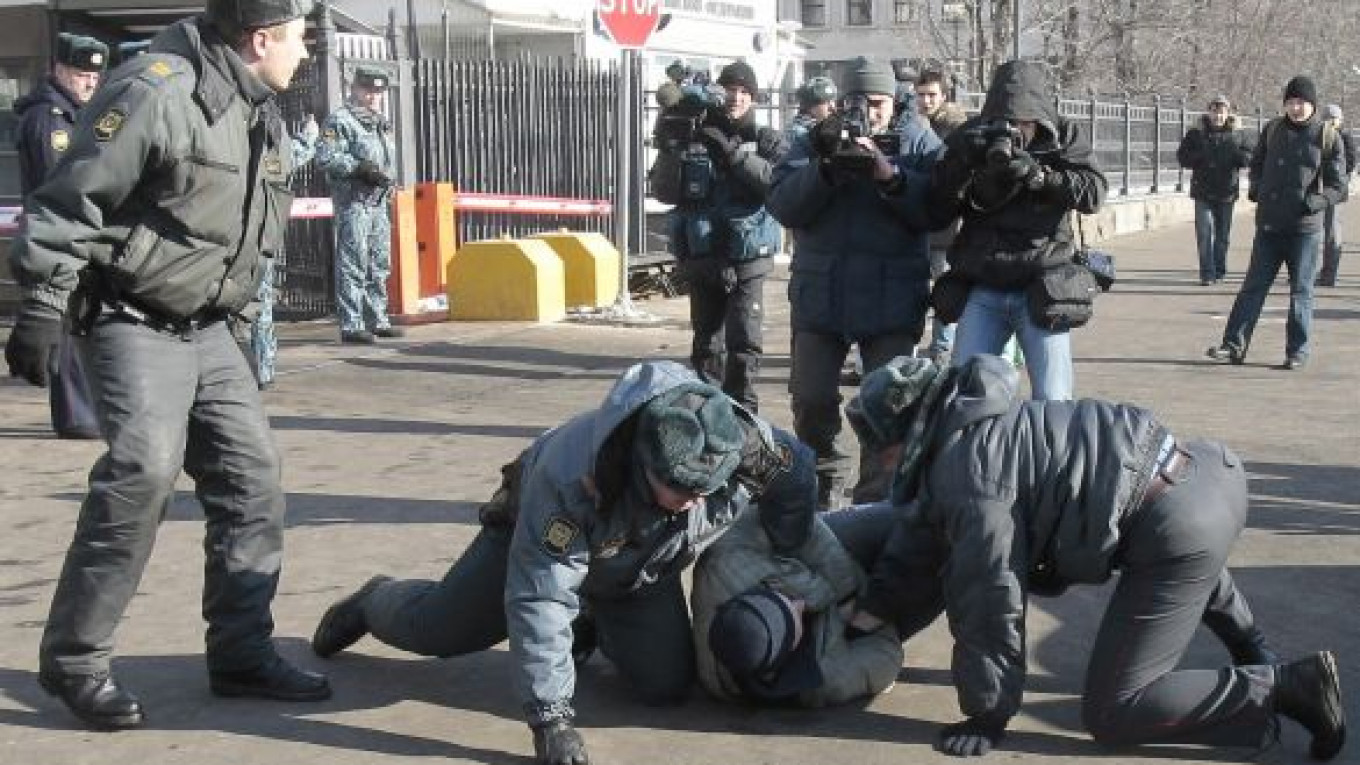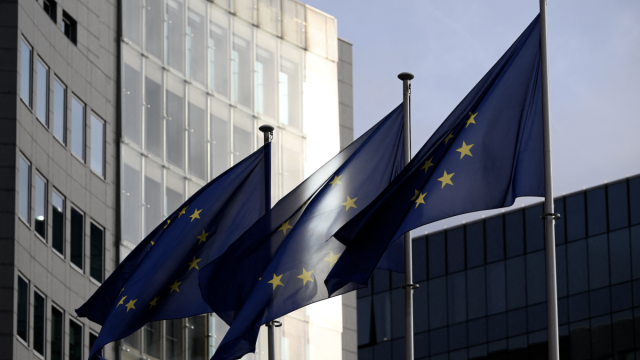The Kremlin's much-touted police reform will kick off with a massive purge, with more than 100,000 officers set to be laid off by May — some by President Dmitry Medvedev personally.
The reform, centered around a police law that came into force Tuesday, is expected to breathe new life into the notoriously corrupt force, but it remains unclear whether it will amount to something more substantial than a showy rebranding.
The number of Interior Ministry personnel will be brought down from 1.2 million to 1.1 million, and Medvedev said not even the top brass are safe from layoffs.
Medvedev ordered Interior Minister Rashid Nurgaliyev during a meeting Tuesday to provide him with a list of senior officials facing re-evaluation by March 15, promising to look into their cases personally by June.
A presidential commission headed by Kremlin chief of staff Sergei Naryshkin will also be involved in reviewing top cops, Medvedev said.
"All who would fail the attestation check … not to mention … those under disciplinary investigation, must not be accepted back into police," Medvedev said, according to a Kremlin transcript.
The checks include lie detector tests and extensive psychological surveys, RBC Daily reported Tuesday, citing a prospective police officer who said he was given a written test with 587 questions, including some about his sex life.
It remains unclear whether Nurgaliyev, who took office in 2004 and has often come under fire for the actions of his subordinates, will keep his post. Medvedev earlier appointed police General Sergei Bulavinov, a former Kremlin staffer, as Nurgaliyev's deputy and the main spokesman for the reform.
The force, literally called "militia" in Russia, adopted the universal moniker "police" starting Tuesday, but little immediate change followed otherwise.
Old "militia" uniforms, badges and other insignia will be in use until 2012, although some officers have taken initiative to speed up the transition, RIA-Novosti reported Tuesday. Police in the Kursk region town of Zheleznogorsk repainted their cars overnight.
"We will continue to serve," a young police officer told The Moscow Times on Tuesday. "To serve the law." The officer refused to be identified because he was not authorized to talk to press.
Another officer said he had no big expectations because the reform does nothing to improve officers' living standards.
"They've done a rebranding, but salaries weren't increased," said the officer, who asked to only be identified as Oleg, 38, a Voronezh resident. He said the average monthly income for a mid-level officer in his city is about $500.
No money is currently allotted in the federal budget to boost police salaries — but the future will be looking brighter for those who survive the post-reform personnel review.
Medvedev may issue a decree on salaries and other benefits for police officers after the personnel reshuffle is finished, Interior Ministry spokesman Oleg Yelnikov said Tuesday. He did not elaborate.
A Message from The Moscow Times:
Dear readers,
We are facing unprecedented challenges. Russia's Prosecutor General's Office has designated The Moscow Times as an "undesirable" organization, criminalizing our work and putting our staff at risk of prosecution. This follows our earlier unjust labeling as a "foreign agent."
These actions are direct attempts to silence independent journalism in Russia. The authorities claim our work "discredits the decisions of the Russian leadership." We see things differently: we strive to provide accurate, unbiased reporting on Russia.
We, the journalists of The Moscow Times, refuse to be silenced. But to continue our work, we need your help.
Your support, no matter how small, makes a world of difference. If you can, please support us monthly starting from just $2. It's quick to set up, and every contribution makes a significant impact.
By supporting The Moscow Times, you're defending open, independent journalism in the face of repression. Thank you for standing with us.
Remind me later.






